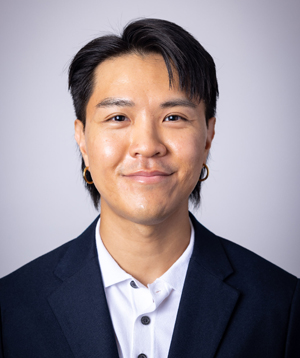2025 Outstanding Doctoral Research Award to Samuel Lee
 Dr. Samuel Lee (They/He) was selected to receive the NARST 2025 Outstanding Doctoral Research Award (ODRA) for their dissertation titled “Toward a linguistic otherwise in science: Customizing curriculum for emergent multilingual learners’ equitable sensemaking”.
Dr. Samuel Lee (They/He) was selected to receive the NARST 2025 Outstanding Doctoral Research Award (ODRA) for their dissertation titled “Toward a linguistic otherwise in science: Customizing curriculum for emergent multilingual learners’ equitable sensemaking”.
This honor recognizes that Dr. Lee’s dissertation was judged by Lee’s NARST colleagues on the ODRA Selection Subcommittee to have the greatest merit and significance in the field of Science Education from among all dissertations nominated for the award this year. Dr. Lee completed their dissertation at Boston College on May 23, 2024, under the direction of Dr. Katherine L. McNeill.
An otherwise possibility recognizes infinite alternatives to current ways of knowing and being that exist alongside our own. The ways of knowing espoused by bi/multilingual students are reflected in their diverse communication methods, though dominant systems in schooling and language-exclusive ideologies restrict these students' full participation in science. Teachers, researchers, and students must recognize and embrace students' multiple ways of knowing and communicating to dismantle restrictive educational practices. By advocating for a shift in science education practices, this research contributes to ongoing discussions on equity and inclusion, emphasizing the value of linguistic diversity in scientific inquiry. This three-paper dissertation explores the orientation of a linguistic otherwise possibility in science through a) exploration of teachers' collaborative design work within a curriculum-based professional learning community (PLC) to promote students' multiple ways of communicating in science; b) an analysis of non-linguistic communication through interaction analysis in a middle school science classroom, and; c) three teachers’ pedagogical reasoning as they customized a curriculum to incorporate multimodal communication. Altogether, the dissertation highlighted how curriculum changes can influence students’ engagement in science practices and knowledge-building through use of a linguistic otherwise in science. These findings underscore the importance of professional development opportunities that support teachers in designing and implementing inclusive science curricula tailored to multilingual learners.
